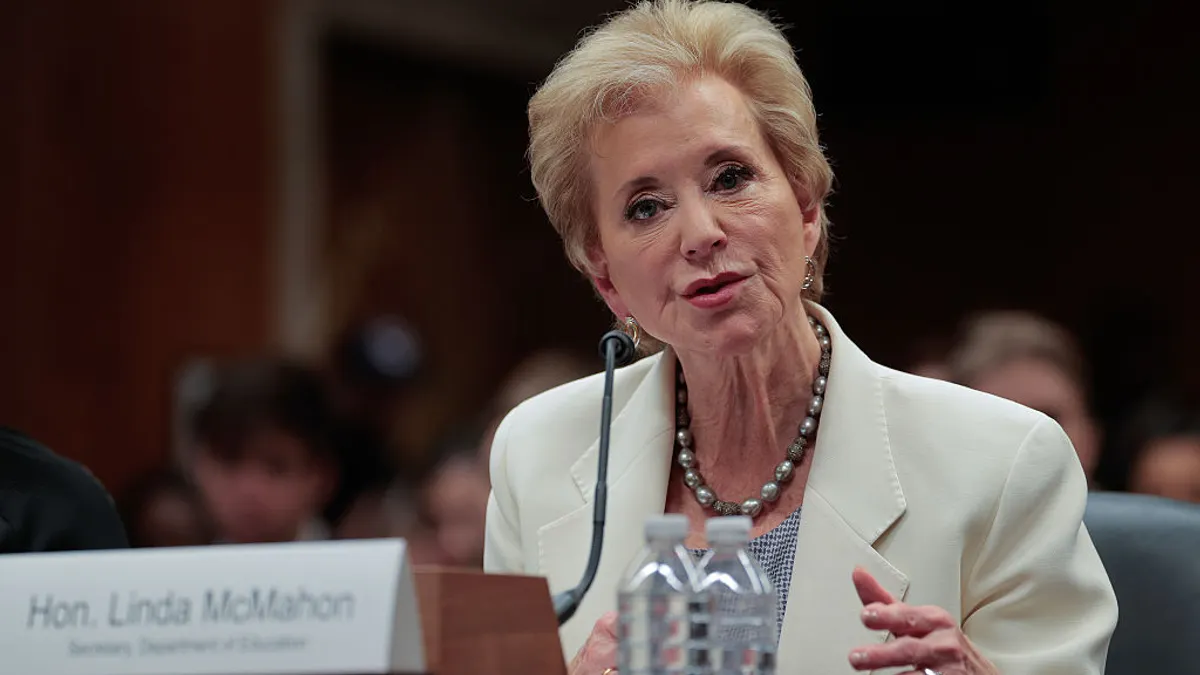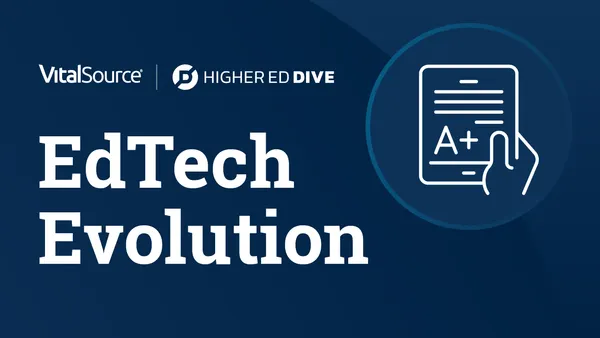2U wants online program managers (OPMs) to be more transparent about the nature of their relationships with colleges and universities, and it's leading the charge.
That's according to a six-part framework it announced Wednesday calling on its competitors to join it in pulling back the curtain on how they work with institutions to deliver online programs. Among the items it wants to share are who OPMs' customers are, how they set tuition prices, and their student outcomes such as retention and graduation rates.
That move isn't too big of a jump for a company that is publicly traded and has made a habit of disclosing certain measures and outcomes in the past, analysts say.
They expect the announcement is an attempt to get ahead of potential federal regulatory changes targeting the sector and to blunt their impact by showing the industry can self-regulate. "They are legitimately concerned about the criticism that's been bubbling up from different quarters," said Trace Urdan, a managing director with investment bank and consulting firm Tyton Partners who studies OPMs.
That criticism reached fever pitch with the publication of an article in HuffPost earlier this year penned by Kevin Carey, vice president for education policy and knowledge management at left-leaning think tank New America. It drew on common criticisms of OPMs, saying their relationships with colleges have contributed to price inflation and that they are opaque on the extent of those ties.
"Too often, students shopping around for and enrolling in online degree programs are completely unaware that their degree is actually managed in large part by third-party, for-profit companies," said Stephanie Hall, a fellow at The Century Foundation, in an email to Education Dive. The think tank has been critical of 2U and other OPMs' relationships with colleges and universities in its research and reporting. She is optimistic about 2U's announcement, calling it "a welcome first step."
Responding to Carey's article, 2U co-founder and CEO Chip Paucek wrote in an op-ed that the piece "misses the mark" on how OPMs affect access to higher education, saying online learning adds convenience and that the company's programs have more gender and racial diversity than those in comparable campus-based programs.
In a statement emailed to Education Dive Wednesday evening, Paucek said he believes "greater transparency will show just how high-quality these programs are, and the positive impact that responsible companies like ours play in helping universities deliver life-changing online education." He encouraged other OPMs to "embrace that call.”
Will the industry follow?
Whether universities are open to being transparent about their relationships with OPMs is less certain. And getting other OPMs to follow suit could be a challenge, said Phil Hill, an ed tech consultant with the firm MindWires.
"Really what it's trying to do is to get other people to put pressure on (companies like) Pearson, Wiley, Academic Partnerships (and) Noodle" to do the same, Hill said. "If I were another OPM, I would not just say, 'Hey, I'm signing onto this,'" though he noted they might be inclined to release similar transparency directives of their own.
In a statement emailed to Education Dive, John Katzman, CEO and founder of OPM Noodle Partners and co-founder of 2U, said the company is "delighted in 2U's new-found religion," citing Noodle's own efforts to improve transparency in the OPM sector in recent years. He encouraged other higher ed stakeholders, including OPMs, to join in.
Noodle is known for its use of a fee-for-service model, an approach it says offers more transparency around how online programs are developed, financed and supported. While 2U has historically taken a cut of tuition revenue from students in the programs it operates, it recently announced it would also offer fee-for-service arrangements.
"They are legitimately concerned about the criticism that's been bubbling up from different quarters."

Trace Urdan
Managing director, Tyton Partners
Paxton Riter, co-founder and CEO of instructional design-focused OPM iDesign, commended 2U for the move. Whether his firm follows the directive will depend on how comfortable its university partners are with revealing information about their programs' performance.
"It's a little bit easier for a public company where a lot of this information is available in an SEC filing," he said.
Gathering disclosures from OPMs through a third-party platform, where it can be done in a consistent and uniform matter, "would be a positive next step" to implementing 2U's vision, Urdan said.
Still, Hill said, “part of the pressure is not on the OPMs (but) on the schools themselves."
Urdan agreed. The framework 2U put forth could help tease out outcomes that aren't so easily captured in federal data, such as for a program that has both online and on-campus options.
"The most sensitive thing here ... is actually getting the schools to agree to allow that information to be disclosed," he said. "It's precedent-setting."
Editor's Note: This article has been updated with comments from 2U.












